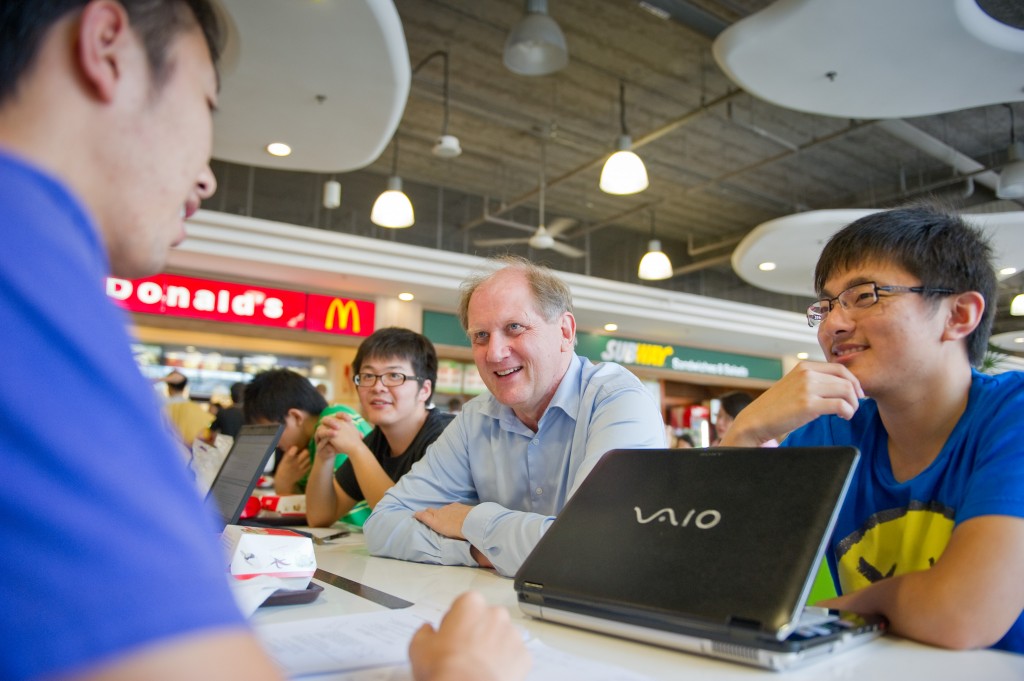I have been in Singapore for seven years and there’s one thing that never fails to amaze me. Singaporeans are passionate about education, especially the education of their children. That’s a good thing. Singaporeans should be happy that they are well served by an education system that is simply world-class.
As I am a beneficiary of education myself, I believe in and appreciate the value of education. I’m the only one among my relatives with a degree. When I was young, my parents never encouraged me to study. I did it myself.
Singaporeans should be proud to have two world ranked universities here, NTU and NUS. I am asked everywhere I go at various international conferences the reasons for NTU’s rapid growth. It is precisely because of the Singapore Government’s belief and investment in universities that a young university like NTU can make big leaps internationally in such a short time.
In a wide-ranging interview with the TODAY newspaper last week, I was also asked about my views on university education and whether Singapore faces a potential problem of having too many graduates.
Singapore is creating more university places and now has six universities. The government’s target is to provide university places for 40 per cent of each school cohort by 2020. In my opinion, that is a good target. Where I came from, Sweden, and in the United Kingdom, about 40 per cent of each cohort are degree holders.
I said that as Singapore is a global city connected to other countries in the world – we trade with them, we interact with them – I think Singaporeans cannot be lower educated than the people in America and England. If not, Singapore will become a second-rate country. A target of 40 per cent, up from the current 30 per cent, is good. We need more students to enter university and also to take up postgraduate studies.
I am surprised that after reading the TODAY story, there are online articles with headlines saying that I disagree with the government on the need for more graduates. There is no disagreement. Yes, Singapore needs more graduates to reach the 40 per cent target. But the economy also needs more Singaporeans with diplomas and other industry-relevant vocational training.
Of course not everyone needs to be a professor or a super academic to be successful in life, and there will be others who take diplomas or other vocational training. That’s fine. What is important is that there are different learning avenues and opportunities for advancement for the other 60 per cent to 70 per cent.
The Singapore education path is very streamlined. Most undergraduates enter university after finishing JC, polytechnic or National Service. I think 90 per cent of undergraduates follow this route. That’s the way it is in most countries and Singapore is no different.
The door to a university should also remain open even later in life. If you don’t enter university when you are 19 or 20, you should have that chance at 28, for example, after working for a few years. It will be beneficial even to the younger ones, to have university classmates who are more senior.
I agree with what Prime Minister Lee Hsien Loong said in his National Day Rally speech that Singaporeans should not go on a paper chase for qualifications or degrees, especially if they are not relevant. As I had said in the interview with TODAY, be ambitious but don’t rush into taking a degree. There are always opportunities to improve oneself, to get better qualifications throughout one’s working career.
Today, there is a renewed emphasis on applied and technical education. I am not familiar with what the polytechnics and ITE here do, but I can speak about what NTU is already doing. Education at NTU is already very applied and specialised, for example, in the fields of teaching, journalism, accountancy, engineering and medicine.
We train our students academically and to be technically competent in these professions through hands-on training, industry attachments and internships. In my view, our degree courses for professions like teaching, medicine, journalism, engineering and accountancy need to be both academic and specialised. At least at higher levels of specialised training, that is training provided by the university. It’s not either or; it’s both.
Let me give an example of an engineer’s future. In the industry of tomorrow, the machines will run themselves. The engineer will be the one programming the robot, not the one standing with the machine and doing things. If you go to modern industries in Sweden, the factory floor is almost empty. With such a future in mind, NTU needs to train engineers not just technically but also academically.
NTU today is well-positioned to meet the requirements of the economy. We produce top-quality graduates that the industry needs. We are gaining international recognition for our teaching and research and moving up quickly in the global university rankings. Of course, we should never be complacent and will continue to work hard for it, together with our key stakeholders, so that NTU will continue to be a jewel in Singapore’s higher education landscape.
Comments? Email us at hey@ntu.edu.sg


